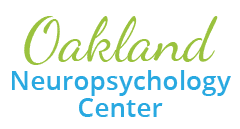
Nonverbal Learning Disorder
A Nonverbal Learning Disorder (NLD) is a developmental disability that all too often goes undiagnosed. Individuals with NLD generally suffer in silence and are often incredibly bright. As young children they may actually be targeted as gifted due to their mature vocabulary and rote memory skills. Parents may notice, however, that something is not “quite right,” and from a very early age these youngsters probably have difficulty interacting with other children or adapting to new situations. More specifically, they have problems with processing visual information (e.g., understanding math, aligning numbers, or drawing), which can cross over into social communication, or “nonverbal” skills (e.g., reading social cues, understanding facial expressions or body language).
Individuals with NLD will probably get through their early elementary years handling the academic demands fairly well, except when fine motor difficulties get in the way. Typically, as a child moves into upper elementary grades or begins middle school, tasks become increasingly challenging in ways that go above his abilities and coping skills. That’s when things begin to get frustrating: the child forgets to do homework, seems unprepared for class, has difficulty following directions, struggles with math, is unable to organize an essay, is continually misunderstood by both teachers and peers, and is often anxious in public and angry at home. If not diagnosed, these difficulties can follow the child into adolescence and adulthood, creating frustrations and disappointments at college, work, or home.
Neuropsychological evaluation and intervention planning for those with NLD is crucial. It will educate the person about his learning strengths, as well as how to use them to best perform at work or school.


